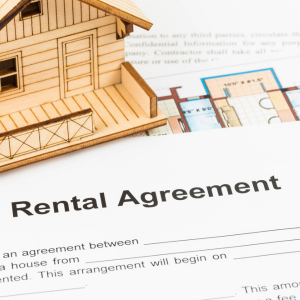
Legal Considerations for Selling a Rental Property with Tenants
What Are the Tenant Rights When Selling a Rented Property?
When you sell a rental property in Connecticut, you must respect tenant rights. These legal protections ensure:
- Lease Agreements: The current lease stays valid even if the property changes ownership. The new owner must honor all existing agreements until they finish.
- Tenant Protections: Laws protect tenants from unfair treatment during the sale. This means respecting their privacy and right to quiet enjoyment.
Following these rights helps prevent legal trouble and maintains a good relationship with tenants.
How Does Existing Lease Impact the Sale Process?

The existing lease can influence how you sell your property. Important points include:
- Transfer of Lease Ownership: The new landlord takes over existing lease agreements. They need to understand lease terms and obligations.
- Tenancy: Whether it’s a month-to-month or fixed-term lease can matter to potential buyers, as some may prefer an immediate move-in.
Selling with tenants requires clear communication about these lease details to everyone involved.
What Notices Must Be Provided to Tenants?
You have a legal duty to communicate with tenants effectively. Important notices include:
- Notice of Intent to Sell: Inform tenants when you plan to sell. This helps them prepare and avoid disputes.
- Notice Period: State laws might require specific notice periods, explaining how long tenants must be informed about showings or the sale.
Clear communication is a legal requirement and promotes respect throughout the sale process.
Preparing Your Rental Property for Sale
How Can You Make a Tenant-Occupied Property Appealing to Buyers?
Selling a property with tenants has its challenges, but there are ways to make it appealing:
- Marketing Strategies: Highlight the property’s investment potential, like current rental income, to attract potential buyers.
- Property Appeal: Keep the property well-maintained and visually pleasing to match buyer expectations.
Working with tenants to keep the space clean and tidy can greatly impact buyer interest.
What Role Does Maintenance Play in the Selling Process?

Maintenance is key to making your property attractive to buyers:
- Repairs and Upkeep: Fix necessary issues before listing. Regular upkeep keeps the value up and makes a good impression on buyers.
- Buyer Perception: A well-maintained property will likely get serious offers because buyers see it as cared for by the owner.
Investing in maintenance can raise the market value of your property.
Can Staging Be Applied to a Rented Property?
Even with tenants, staging can improve how a rented property looks:
- Showings: Arrange showings with tenant cooperation while respecting their space.
- Tenant Cooperation: Encourage tenants to declutter and organize before showings.
- Marketing Visuals: Use professional photos or virtual staging to show the property at its best.
Staging can make a strong first impression, helping with a faster sale and better offers.
Effective Communication Strategies with Tenants
Why Is Transparent Communication Important During the Sale?
Clear communication is key to keeping a good relationship with tenants when selling a rental property. In Connecticut, tenant rights are well-protected by law. By keeping communication open, landlords can prevent misunderstandings and legal problems. Informing tenants about potential changes builds trust and cooperation. Open dialogue also connects tenants with advocacy resources in Connecticut so they feel supported.
How Can You Involve Tenants in the Selling Process?
Involving tenants in the selling process can help landlords and buyers. Recognizing tenant rights and respecting agreements helps the process go smoothly. Here are some helpful tips:

- Inform Early: Let tenants know about the sale early to avoid surprises.
- Schedule Viewings Respectfully: Plan showings that work for tenants at times.
- Negotiate: Use tenant negotiation strategies that follow Connecticut rules to discuss any temporary changes during the sale.
What Agreements Can Be Made Between Landlords and Tenants?
Having clear agreements between landlords and tenants ensures everyone is on the same page. In Connecticut, these agreements might include:
- Lease Agreements: Clearly state the terms and conditions, including how a sale might affect them.
- Tenant Buyout Agreement: Consider buyout options if needed, according to Connecticut rental laws.
- Landlord-Tenant Agreement: Make sure both parties understand their legal rights and duties.
Understanding Connecticut Laws for Selling Rental Properties
What Are the Specific Requirements for Selling in Connecticut?
Selling a rental property in Connecticut involves certain legal steps:
- Real Estate Laws: Know Connecticut property sales regulations to stay compliant.
- Title Transfer: Learn the procedure for transferring property titles in Connecticut.
- Notice of Sale: Landlords must give tenants proper notice of sale following state guidelines.
How Do Connecticut’s Tenant Protections Affect Sales?
Connecticut’s tenant protections play a big role in the sales process. Landlords need to honor tenant eviction rights and follow fair housing laws. Consider these important parts:

- Tenant Relocation Assistance: Offer support per Connecticut’s rules if relocation is needed.
- Landlord Obligations: Meet all duties, ensuring compliance with the law and tenant cooperation.
Are There Any Local Regulations to Be Aware Of?
Knowing local regulations is crucial when selling a rental property in Connecticut. Important areas include:
- Connecticut Rental Housing Legislation: Keep up with laws affecting the rental property market in Connecticut.
- Housing Court Procedures: Understand the steps involved in Connecticut housing court cases.
- Real Estate Transactions: Follow best practices for real estate transactions in Connecticut to make the sale process smooth.
Valley Residential Group is committed to helping landlords every step of the way while respecting tenant rights and following legal obligations in Connecticut.
Financial Aspects of Selling a Rental Property
When you sell a rental property, it’s important to consider the financial aspects. This means considering how tenants can change the property’s value, understanding the tax implications, and finding ways to get the most profit, even with tenants living there.
How Is the Property Valuation Affected by Tenants?
Tenant occupancy can change how much your property is worth. When there are existing leases, potential buyers see both plusses and minuses:
- Existing Lease: A lease that ensures steady rent might boost the property’s value.
- Tenant Rights: New owners need to consider tenant rights, which could limit their flexibility.
- Selling Tenanted Property: Marketing the property as an investment can attract buyers who want regular cash flow.
What Tax Implications Should Be Considered?
Before selling a rental property, it’s vital to grasp the tax implications:
- Rental Income Taxation: Money earned from rent is taxed, which affects your net profit.
- Property Tax Implications: Ensure property taxes are paid to avoid problems during the sale.
- Capital Gains: The profit from the sale counts as a capital gain and must be reported.
- Depreciation Recapture: If you’ve claimed depreciation on taxes, you must pay it back when selling.
How Can You Maximize Profit in a Tenant-Occupied Sale?
To make the most money when selling a property with tenants, consider these strategies:

- Negotiation Strategies: Be ready to discuss terms with buyers, highlighting the perks of having tenants.
- Property Management: Keep the property appealing through good management.
- Investor Purchase: This is intended for investors who want rental opportunities, as they understand tenant processes.
Managing Buyer Expectations and Negotiations
When selling a rental property, it is key to handle buyer expectations and negotiations well. You need to address buyer concerns and stay transparent for a smooth sale.
What Information Should Be Shared with Potential Buyers?
Sharing important information with potential buyers builds trust:
- Existing Leases: Lay out all current lease agreements.
- Property Details: Give full information on the property’s condition and features.
- Tenant Agreements: Share any key details about tenant rights and responsibilities.
How Can You Address Buyer Concerns About Tenant Occupancy?
Handling buyer worries about tenants requires clear communication:
- Lease Agreements: Explain the lease terms and tenant rights.
- Tenant Stability: Point out the reliability of your tenants.
- Eviction Rights: Discuss how tenant eviction can happen if needed.
What Are Effective Negotiation Techniques When Selling with Tenants?
Using good negotiation techniques can help when selling with tenants:
- Communication Strategies: Keep open and regular communication with tenants and buyers.
- Buyer Interests: Understand and cater to buyer interests concerning tenant occupancy.
- Tenant Cooperation: Get tenants on board by informing them and addressing their concerns.
By understanding these aspects and applying clear strategies, sellers can handle the challenges of selling a rental property, ensuring a smooth transition while achieving financial goals.
Alternatives to Selling with Tenants
Should You Consider a Buyout Agreement with Tenants?
A buyout agreement can be a good option if you’re considering selling a property with tenants. This means you would negotiate with tenants to end the lease early. Here are some key points:
- Tenant Rights: Know tenant rights well. Follow the law to protect everyone involved.
- Negotiation: Talk fairly with tenants to reach a buyout agreement everyone likes.
- Landlord Responsibility: As a landlord, honor the lease and consider tenant needs in your terms.
What Are the Benefits of Waiting for Lease Expiration?
Waiting for the lease to end can make selling your rental property easier. Consider these benefits:

- Tenant Rights Compliance: Following tenant rights helps avoid legal problems.
- Clear Lease Termination: When the lease ends naturally, it ends tenant occupancy.
- Landlord Obligations: Meet all obligations in the lease until the tenant leaves.
Can Selling to an Investor Simplify the Process?
Selling to a real estate investor can be a great choice for property owners. Here’s why:
- Streamlined Selling Process: Investors often need fewer inspections and financial steps.
- Market Knowledge: Real estate investors understand market trends and can help sell faster.
- Rental Property Appeal: Investors might like tenant-occupied properties because they offer immediate income.
Marketing a Tenant-Occupied Property
How Can You Showcase the Property Despite Tenant Presence?
To showcase a property with tenants, clever marketing is needed:
- Marketing Strategies: Show off the property’s best features while respecting tenant privacy.
- Real Estate Techniques: Use virtual tours and professional photos to draw in buyers.
- Buyer Engagement: Create listings that attract buyers interested in tenant-occupied homes.
Are Open Houses and Showings Possible with Tenants?
Open houses and showings with tenants can work if managed right:
- Scheduling: Plan and pick times that work for tenants.
- Potential Buyers: Attract buyers by showing the property during open houses.
- Tenant Cooperation: Communicate well with tenants to get their help during showings.
What Marketing Strategies Appeal to Investors?
To attract real estate investors, use focused marketing strategies:
- Investor-Centric Approach: Focus on what investors care about, like location and earnings potential.
- Property Market Insights: Share data and stats showing market value and ROI.
- Showcasing Value: Highlight the property’s features to catch investor interest.
Valley Residential Group offers expert advice and solutions tailored to your real estate needs.
Navigating Challenges and Finding Solutions
Tenant-landlord relationships can be tricky. Knowing tenant rights, handling eviction issues, and getting legal help can make these situations easier.
How Can You Overcome Resistance from Tenants?
Overcoming tenant resistance takes negotiation and good communication.

- Open dialogue: Listen to tenant concerns and be clear about lease agreements.
- Foster cooperation: Keep tenants updated and treat them to encourage cooperation.
What Are Common Obstacles, and How Do We Address Them?
Landlords often face challenges related to tenant rights and the eviction process:
- Tenant rights and legal challenges: Know your legal rights and landlord duties to avoid disputes.
- Eviction process: Follow legal steps and give proper notice to prevent legal issues.
Can Legal Assistance Help in Complex Situations?
Legal assistance is vital for resolving tenant disputes and understanding housing court procedures. Consult an attorney for:
- Tenant dispute resolution: Get professional legal advice to solve your situation.
- Landlord legal guidance: Get expert help to handle complex legal matters.
Planning Post-Sale Transitions
After a sale, managing lease transfers and ensuring a smooth changeover for new property owners are important.
How Should Lease Transfers or Terminations Be Handled?
Lease transfers or terminations need careful planning:
- Lease transfer procedures: Know the terms in lease agreements to make transfers easy.
- Lease termination processes: Give the right notice as state laws and lease agreements require.
What Steps Should Be Taken After Closing the Sale?
After the sale closes, meet all legal and logistical needs:
- Property title transfer: Finish the paperwork to transfer ownership.
- Tenant notification procedures: Tell tenants about the new owner and any property management changes.
Can Property Management Services Ease Transition for New Owners?
Property management services can help new owners:

- Effective transition management: These services manage rental property for a smooth handover.
- Specialized services: In places like Connecticut, expert property management can manage operations well, helping landlords and tenants alike.
Using these strategies and resources, Valley Residential Group can effectively manage these challenges, stay compliant, and maintain positive tenant relationships.
This information applies to Connecticut and its cities, including Hartford, West Hartford, Meriden, Cheshire, and more. For more details, please call us at (860) 589-4663 or visit our website at Valley Residential Group LLC.
FAQs:
Can I sell a rental property with tenants still living in Connecticut?
Yes, you can sell a rental property even if tenants live there. The new owner must follow the lease terms, allowing tenants to stay until the lease ends.
What happens to the tenant’s lease if the property is sold?
In Connecticut, if the property is sold, the new owner has to honor the existing lease until it naturally expires. Tenants do not need to leave before the lease ends unless both parties agree.
Are there any incentives for tenants to leave early when selling a rental?
Sometimes, landlords offer a “cash for keys” deal to encourage tenants to move out early. It’s important to have a clear and written agreement for this.
How should I inform my tenants about the sale of the property?
Tenants should get a notice about the sale ahead of time. Communication should be clear, and it’s smart to discuss the timeline and any planned open houses with respect.
Do tenants have any rights to purchase the property?
Tenants might want to buy the property, but they need a formal agreement, such as a right of first refusal, to get a first chance at buying.
What are some potential challenges in selling a rental with tenants?
Challenges include getting tenant cooperation for showings, handling lease obligations, and maintaining clear communication. Understanding landlord insurance and tenant resources is also key.
How does selling a rental property affect security deposits?
The security deposit should be paid to the new owner at closing or returned to the tenant if necessary. Handling these funds correctly helps avoid problems.
What legal steps are involved in resolving tenant disputes during a sale?
Issues can be solved through negotiation or small claims court. Knowing tenant strategies and having a clear lease termination clause can help resolve conflicts.
Key Insights
- In Connecticut, tenants have strong protections when a property is sold. The new landlord must honor the lease until it expires unless they agree to end it early.
- A buyer or seller can end a tenancy by giving the tenant three days’ written notice if specific conditions under Connecticut law are met.
- Selling a rental property with tenants involves negotiation and respecting the renter’s lease agreements.
- To smooth the sale process, landlords should communicate well with tenants about any notice of sale and potential tenant purchase rights in Connecticut.
- Options like lease termination clauses, tenant buyout agreements, and cash-for-keys agreements help manage tenancies during a property sale in Connecticut.
- Landlords must handle security deposits according to Connecticut state laws, especially during foreclosure or probate court proceedings.
- Real estate professionals, investors, and brokers in Greater Hartford can help with appraisals and market analysis to set a fair selling price.
- Important considerations when planning to sell a rental in Connecticut include landlord insurance, property appraisal services, and tenant screening.
- Addressing tenant fears or concerns, especially during events like divorce, can lead to smoother transactions.
- Knowing about rental income taxation and using incentives can make properties more appealing to potential buyers or investors.


